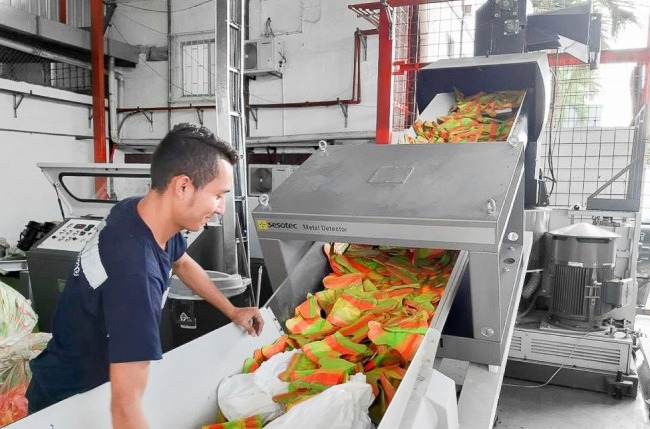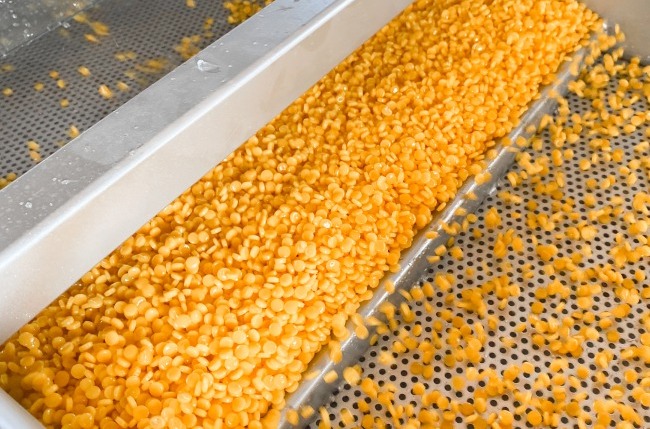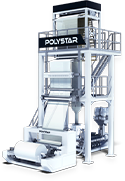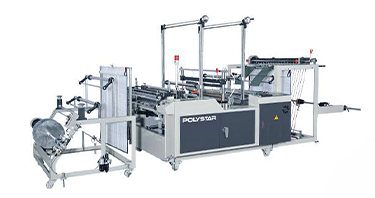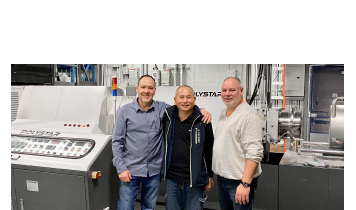We use cookies and other tracking technologies to improve your browsing experience on our website, By clicking "Accept All," you agree to allow cookies to be placed to enhance your browsing experience on this website to show you personalized content and targeted ads, to analyze our website traffic, and to understand where our visitors are coming from. You can manage your cookie settings below. Clicking "Confirm" indicates your agreement to adopt the current settings.
Why Should All Plastic Film Producers Recycle?
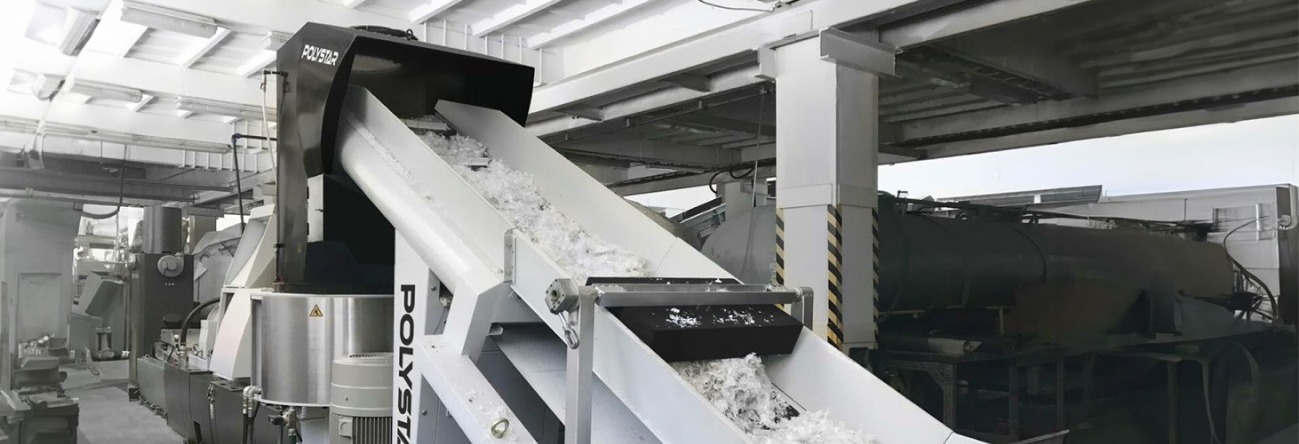
Why is recycling plastic important?
Why do producers want to recycle plastics?
Although plastic is a very popular material, on a global level, less than 10% of it is recycled. With plastic waste being in such a high supply, producers could benefit from incorporating recycling into their existing business model.
A recent study by Business and Daily found that 72% of the respondents are actively buying more environmentally friendly products than they did 5 years ago. This means that demand for environmentally friendly products, like film manufactured with recycled materials, is on the rise and will continue to be, as 81% of respondents answered they expect to buy even more environmentally friendly products in the next 5 years.
The importance of recycling plastic has become impossible to neglect as governments push plastic recycling in their policies, like the “Strategy for Plastics in a Circular Economy” in Europe which aims for a 55% recycling of all plastics packaging by 2025 and recyclability of all new plastics packaging by 2030.
How can plastic producers benefit from recycling?
To decrease costs and avoid extracting more natural resources such as virgin materials, plastic producers can add recycled materials to their current plastic production operations. To do this, producers don’t have to buy recycled materials from external sources, they can simply begin by recycling their post-industrial plastic waste and using it back in the production line.
Most plastic producers don’t know what to do with their factory waste. Instead of shipping the factory waste to far locations, which makes the company lose a cut of the profit generated from recycling and generates emissions from transporting the plastic materials, they can recycle the waste themselves. Now is a good time for producers to take a different approach to waste and view it as a resource rather than a problem.
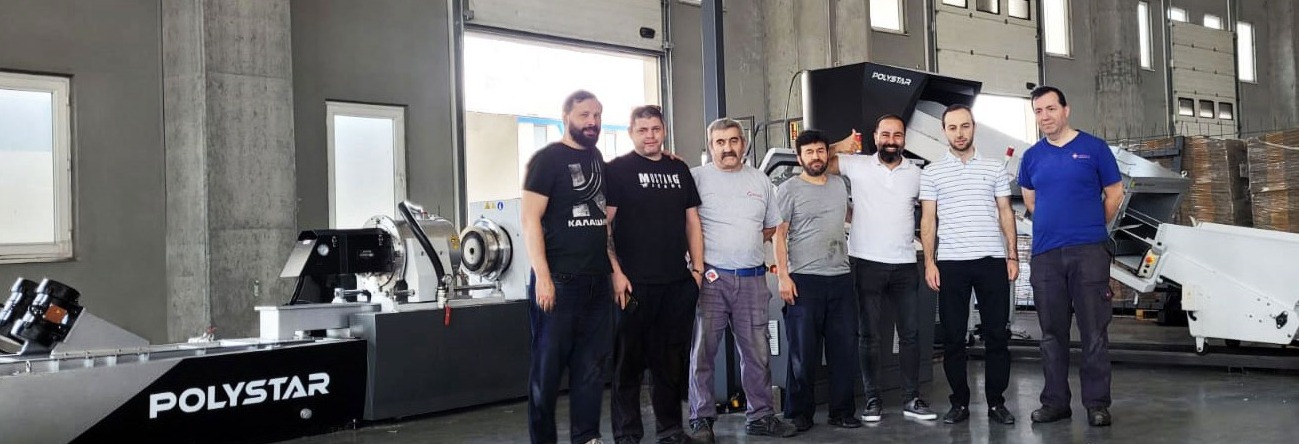
Turkish flexible package and courier plastic bag producer turns to industrial waste recycling to reduce logistics and storage costs as he recycles his own factory waste to create a circular economy and generate more profit using POLYSTAR Repro-Flex cutter compactor integrated plastic recycling machine. (Read More)
How can plastic producers increase their recycling?
With the increasing demand for recycled plastic materials, some producers have turned to outside-factory sources for recyclable plastics.
In fact, some plastic producers like Ecuador-based plastic producer, Plasticonsumo, have gone a step further and have even begun processing plastic that has already been used by end consumers (post-consumer waste). Producers can collect plastic waste from outside sources and process it to reuse the recycled pellets from post-consumer waste back into plastic film or bag production.
Recycling both post-consumer and post-industrial waste can help plastic producers extend their business while they reduce their costs, use more recycled materials, and complete the circular economy.
Ecuadorian plastic producer expands his machine line by purchasing bigger-sized Repro-Flex Plus machines from POLYSTAR to recycle post-consumer waste due to the increasing demand for recycled products. ( Read More )
How to make your plastic film more eco-friendly?
1. Incorporate a plastic recycling machine into your production line
Post-industrial plastic recycling, or recycling your own factory’s plastic waste, is an easy way to start. This mainly consists of taking the scraps, defective rolls, or start-up waste created from the production line and transforming it back into pellet form to be reused in the production line.
To do this, producers need a reliable machine that fits their specific recycling needs. Here we will introduce two machines perfect for beginners who want to take up recycling:
-
Repro-Air mini plastic recycling machine
This model is an air-cooled mini plastic recycling machine, which does not require huge space and budget for you to start recycling in your factory. It has a simple design that makes it very easy to operate. This mini plastic recycling machine can be placed right next to your blown film machines or bag-making machines so you can recycle the waste right away.
-
Repro-Flex plastic recycling machine
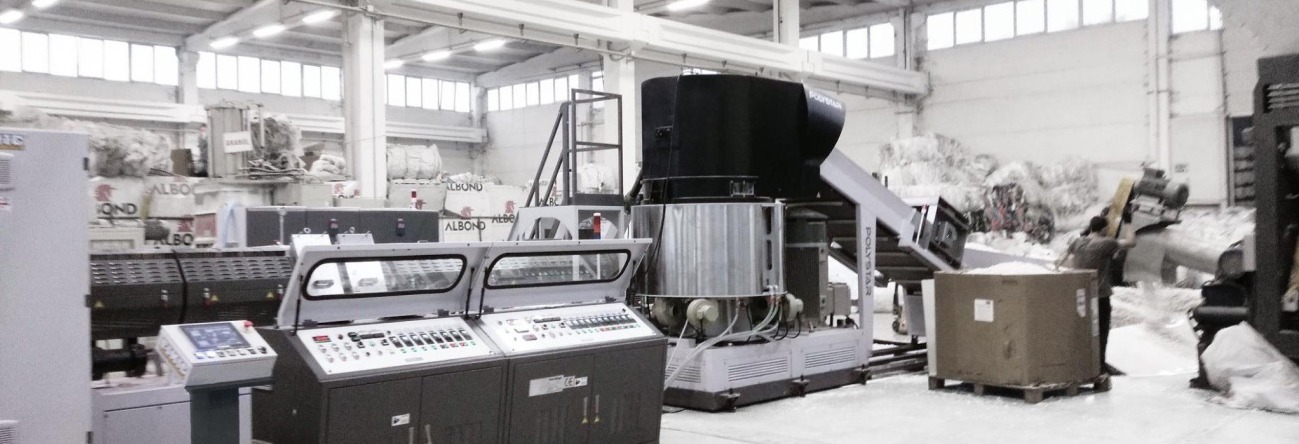
US plastic recycler uses POLYSTAR Repro-Flex recycling machines for processing post-industrial and post-consumer waste. Thanks to the machine’s performance the producer can keep the machine running consistently and obtain high-quality pellets. ( Read More )
2. Add recycled plastic materials to your products
Once you have obtained recycled pellets, these can be used back into blown film machines to produce a film with recycled material. Here we introduce two types of machines that can innovate the way you produce plastic:
-
ABA Blown Film Extruders: Eco-X
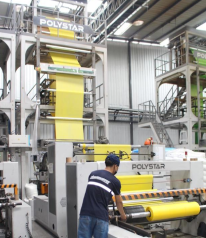
- Single-layer Blown Film Extruder
Single-layer blown film extruders can also be used to produce plastic with a high recycled material percentage. POLYSTAR has specially designed the extrusion screw in the machines to work with the highest possible percentage of recycled material to allow film producers to be more flexible when making different products with different formulas and materials.
-
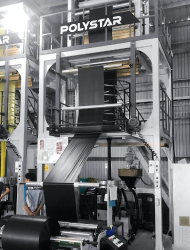 This producer in Vietnam is using up to 80% of recycled materials in monolayer extruders, thanks to the special screw design. ( Read More )
This producer in Vietnam is using up to 80% of recycled materials in monolayer extruders, thanks to the special screw design. ( Read More ) -
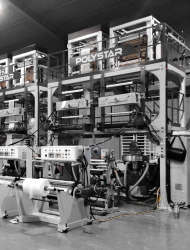 The leading Mexican plastic bag producer located in Jalisco has found the Twin (double) head, single-layer extruder to be the most cost-effective machine for the application, using up to 70% recycled material. ( Read More )
The leading Mexican plastic bag producer located in Jalisco has found the Twin (double) head, single-layer extruder to be the most cost-effective machine for the application, using up to 70% recycled material. ( Read More )
Why should all plastic film producers recycle?
Related Link
About the Author
Renee Castro
Renee is helping plastic producers find simple solutions to their problems. She is interested in topics like the circular economy and the latest recycling trends.

